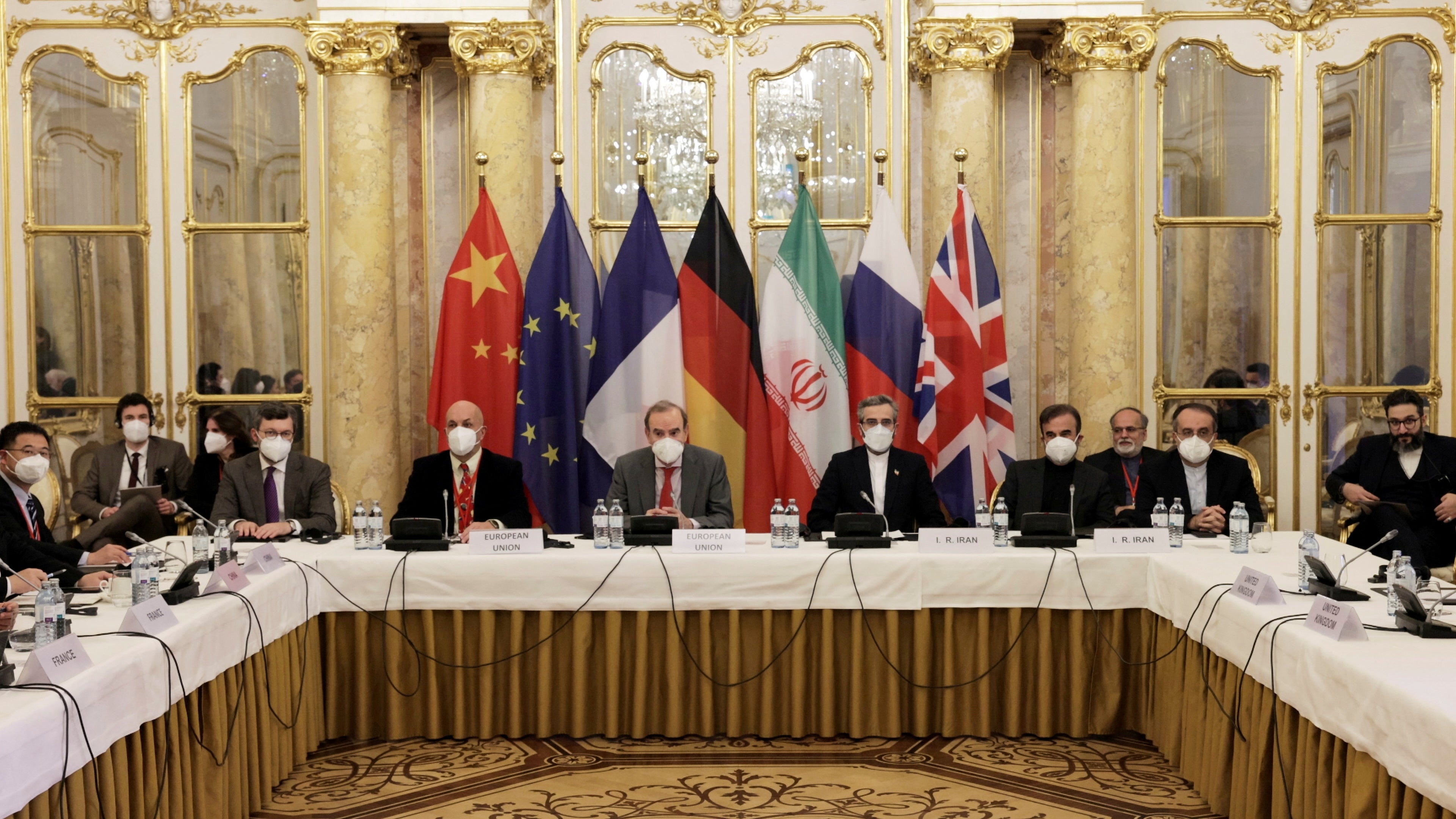Iran nuclear deal ‘could be agreed within 48 hours’
Lifting of sanctions on Tehran would allow resumption of oil exports, easing pressure on energy prices

Your support helps us to tell the story
From reproductive rights to climate change to Big Tech, The Independent is on the ground when the story is developing. Whether it's investigating the financials of Elon Musk's pro-Trump PAC or producing our latest documentary, 'The A Word', which shines a light on the American women fighting for reproductive rights, we know how important it is to parse out the facts from the messaging.
At such a critical moment in US history, we need reporters on the ground. Your donation allows us to keep sending journalists to speak to both sides of the story.
The Independent is trusted by Americans across the entire political spectrum. And unlike many other quality news outlets, we choose not to lock Americans out of our reporting and analysis with paywalls. We believe quality journalism should be available to everyone, paid for by those who can afford it.
Your support makes all the difference.Agreement on the international deal on Iran’s nuclear programme could be reached within 48 hours, a senior participant in talks has said.
The revival of the deal first struck in 2005 would pave the way for the end of sanctions on Iran, allowing it to step up oil exports to Western countries seeking to halt their reliance on Russia for energy supplies.
Coming just days after the return of Nazanin Zaghari-Ratcliffe to the UK after six years of wrongful detention, an agreement would mark a further step in the normalisation of Tehran’s relations with the international community.
Irish foreign minister Simon Coveney, who acts as United Nations Security Council facilitator at the talks in Vienna, said “the signals are good” for agreement over the weekend.
And he said there was “no question” that agreement would lead to renewed oil exports from Iran, reducing upward pressure on energy prices in the West.
Mr Coveney told Radio 4’s Today programme: “We are getting much closer to signing a deal.
“In fact, some would say that there’s prospects potentially for a deal this weekend.
“Iran has a national holiday that starts on Monday that lasts nearly two weeks and so it may well be the case that the political leaders want to get this issue done in the next 48 hours or so, and that’s certainly our hope.”
He added: “There’s no question that other countries in the continent of Europe, particularly on the western side of Europe, now want to move away from a reliance on Russian oil, gas and coal.
“Having a big player in the market, Iranian crude oil coming back into the market with the removal of sanctions, would be a very attractive prospect in terms of reducing pressure on oil prices.
“This means a big oil producer effectively back in the market for providing oil into the US and elsewhere. I think that is an added incentive to try to get a deal done.”
The JCPOA (Joint Comprehensive Plan of Action) was agreed between Iran and France, Germany, the UK, the USA, China and Russia, allowing Tehran to develop a civil nuclear energy programme and avoid sanctions in return for giving up its atomic weapon ambitions.
Donald Trump pulled the US out of the agreement in 2018, but the Biden administration has indicated it is willing to re-engage so long as Iran is in compliance with its obligations, and talks have been under way in Vienna since 2021.
Mr Coveney cautioned that there was “no certainty” of the deal being revived this weekend.
But he said: “There certainly is a possibility now. This deal really was almost done two or three weeks ago, and certainly on the EU side, we’ve been happy with the text of the deal for the last two to three weeks.
“It’s really been about trying to get the remaining parties to the JCPOA across the line.”
Russia’s invasion of Ukraine has caused “tension and delay” in the Vienna talks because of Moscow’s concern that international sanctions will prevent it from gaining any benefit from the opening up of Iran, said Mr Coveney.
But he said: “That seems to have been resolved in the last few days. We look as if we’re almost there. That’s a good news story when the world needs one and it’s also a reminder that multilateralism can work if there’s patience and determination to get a deal across the line.”
Join our commenting forum
Join thought-provoking conversations, follow other Independent readers and see their replies
Comments